The Learning Zone
"Learning is a treasure that will follow its owner everywhere." - Chinese Proverb

The Learning Zone
"Learning is a treasure that will follow its owner everywhere." - Chinese Proverb
"Coming together is the beginning, staying together is progress,
and working together is success." - Henry Ford
When your child arrives home from school, rather than asking them "What did you do today?" ask "What did you learn today?" Placing the focus on the learning encourages children to think more deeply about the knowledge they've gained and the skills they've practised. Other questions to ask include:
* Why are you learning this?
* How are you going with your learning?
* How do you know if/when you are successful in this learning?
* How can you improve?
* What would you like to learn next?
* What classroom resources can you use if you need help?
Throughout the school day teachers ask similar learning focused questions. These are known as 'The 5 Learning Questions':
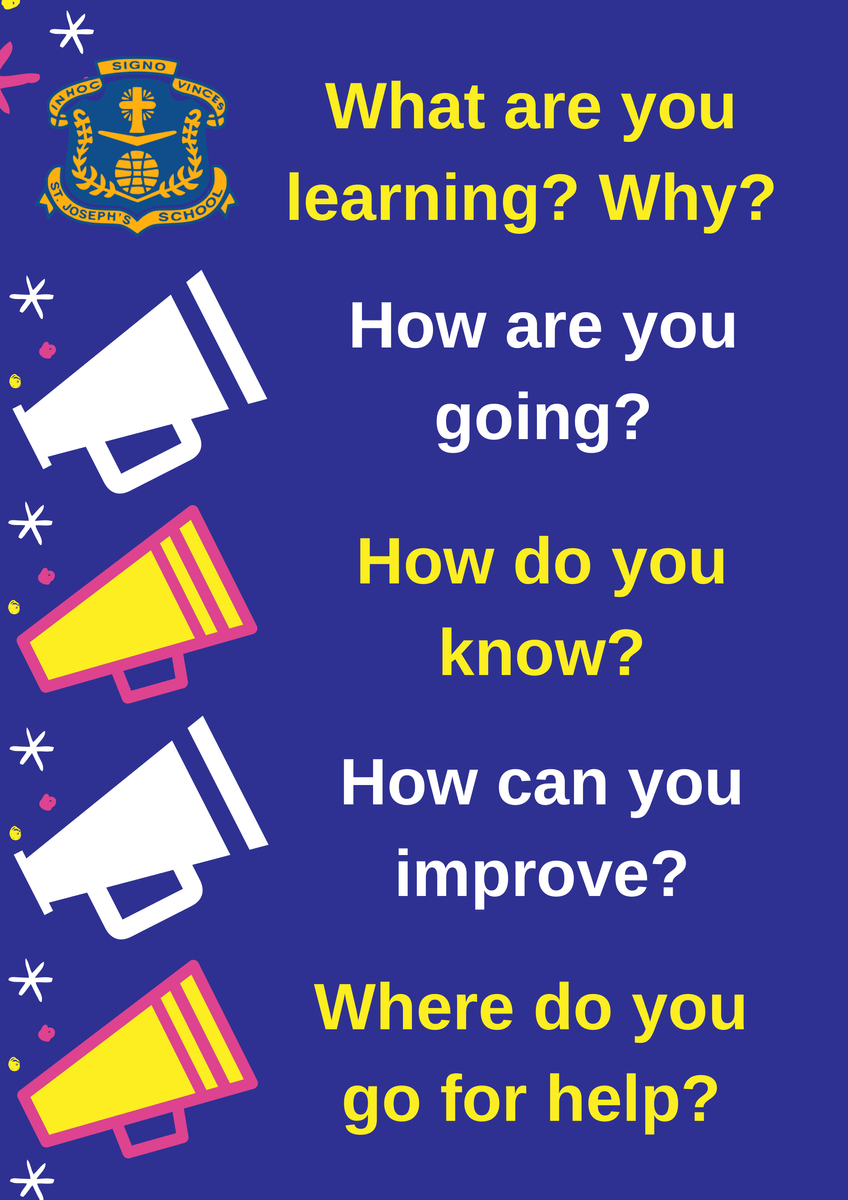

Student responses to these questions give feedback to the teacher about how effective the class instruction has been and how clear the learning intention was explained. Children should be able to confidently and accurately articulate their learning and answer the 5 learning questions.
What is happening in the world of mathematics at St Joseph's? Let's take a look!
Please see the information below to assist your child at home or to see what they have been doing so far this term.
Maths At Home:
Kindergarten - Addition
Kindergarten now it is time for another look at Addition. Have fun!
Encourage your child to help you when out shopping by counting and collecting objects to put into the basket, e.g. ‘Can you get 2 apples? (add more) How many do we have altogether?’
Using everyday materials to model addition. For example, start with 5 spoons from the cutlery drawer, now add 4 more spoons. How many are there altogether?
When playing with building bricks or small toys, encourage your child to count how many of each colour or size.
Sing number-themed counting rhymes and use your fingers or small props to help count the items, e.g. 10 Green Bottles.
Look at the ten frames below. How many more counters are needed to make ten? Write your answer in the box next to each ten frame.
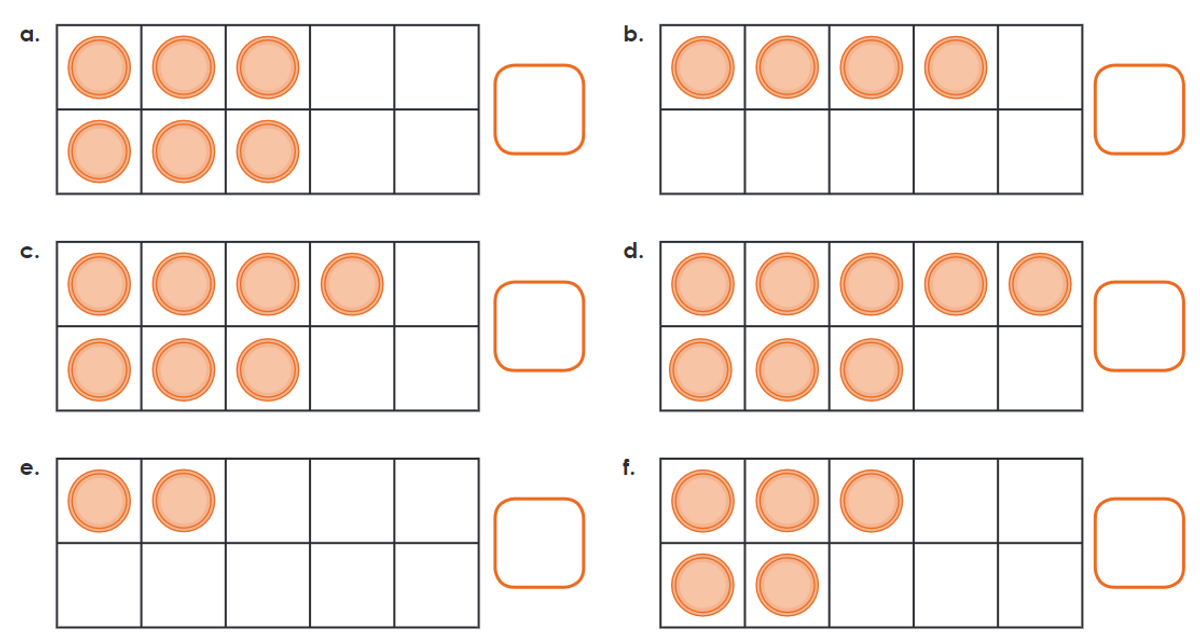

Stage 1 - Area
After completing a unit of work on Multiplication Stage 1 have begun working on Area which promises to be lots of fun.
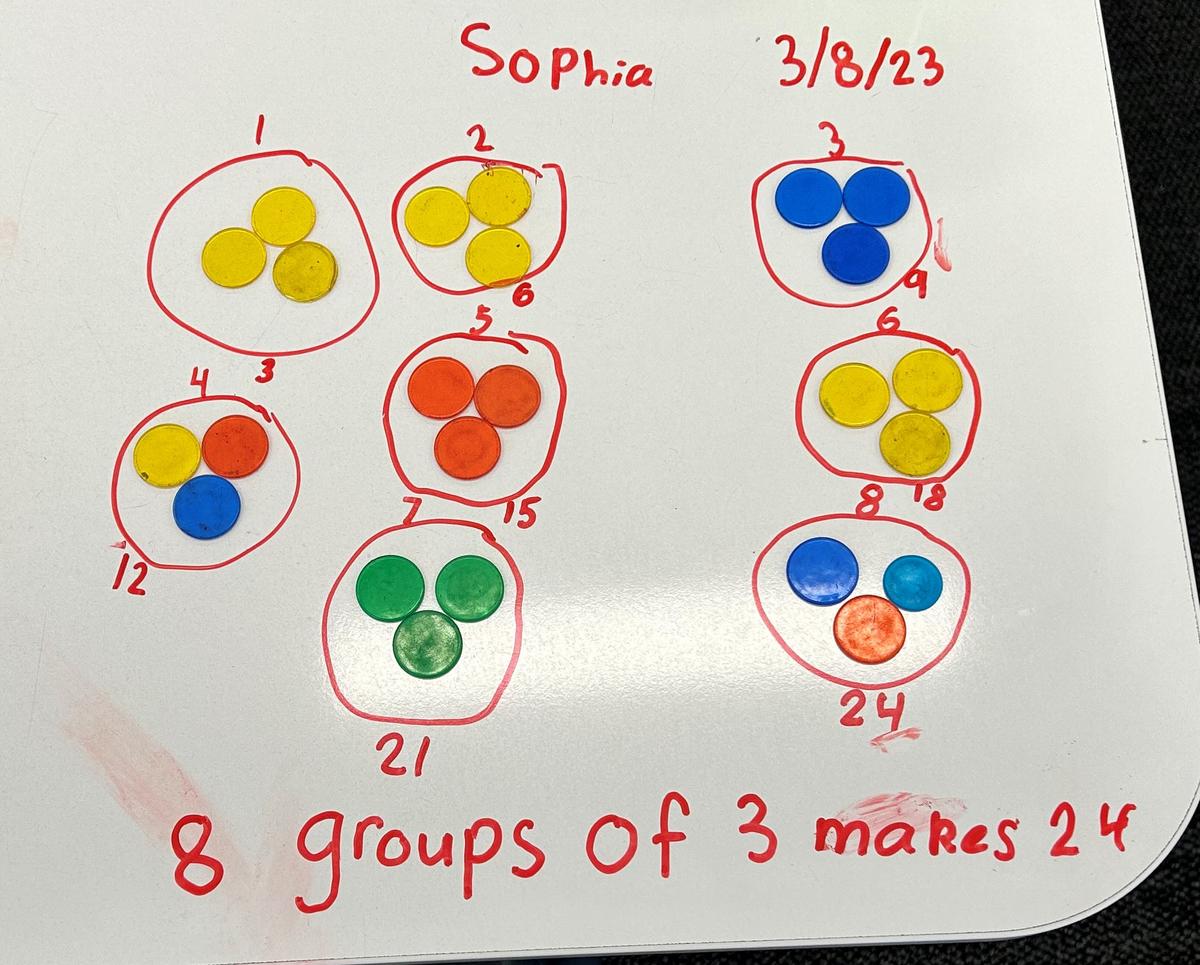

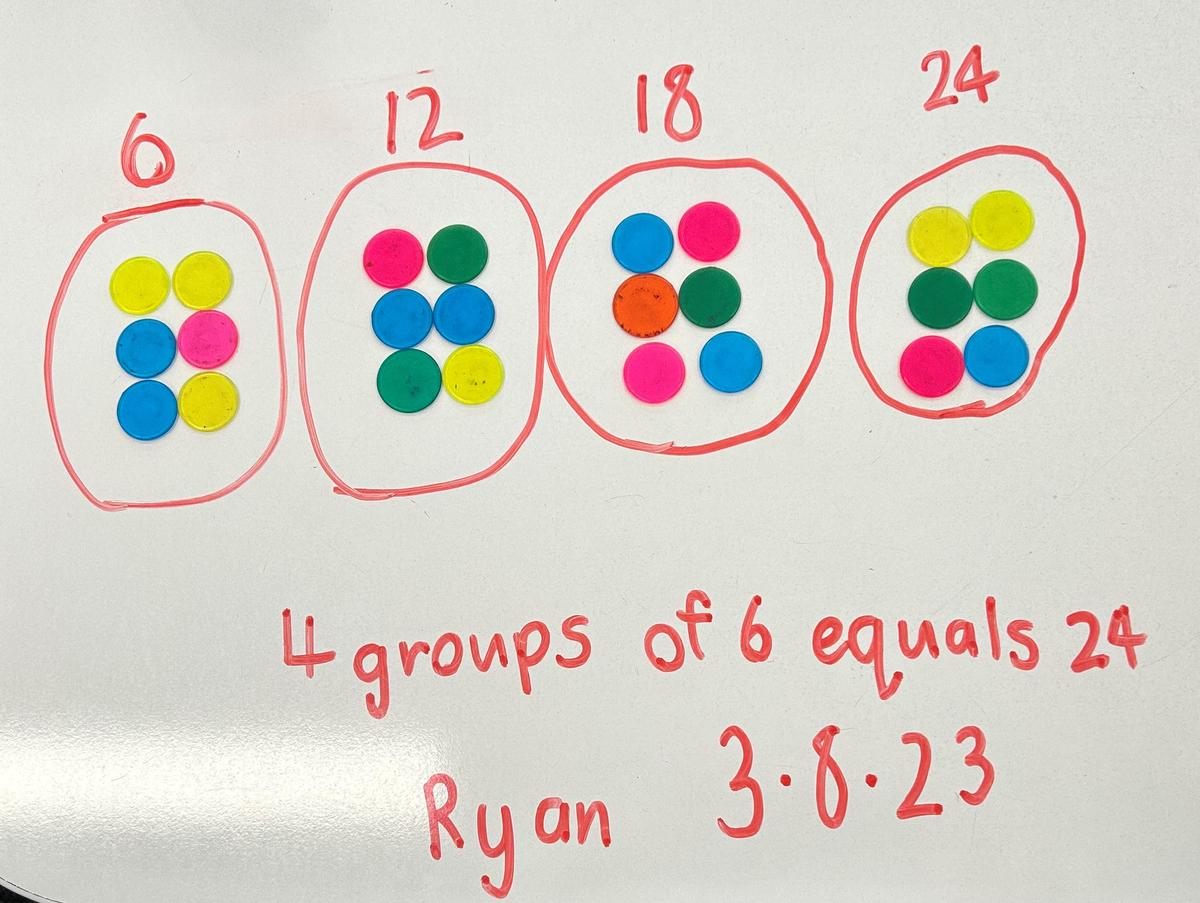

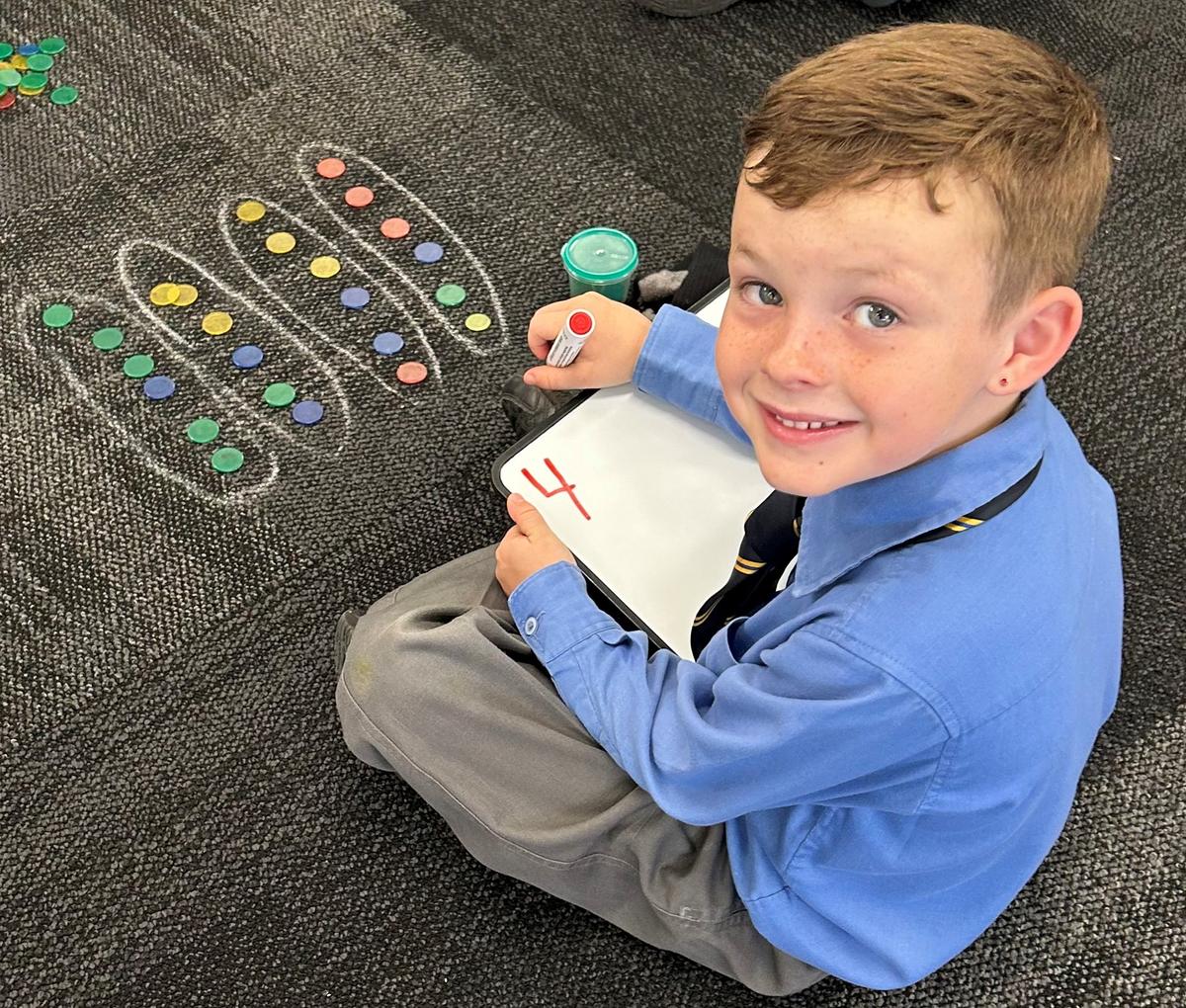

Area is all about the space (surface) occupied by a flat shape or the surface of an object. Parents, please encourage your child to compare the area of different shapes and measure using informal units. For example: top of the dining room table, top of their desk, different footprints/handprints, etc.
The links below are about finding the area:
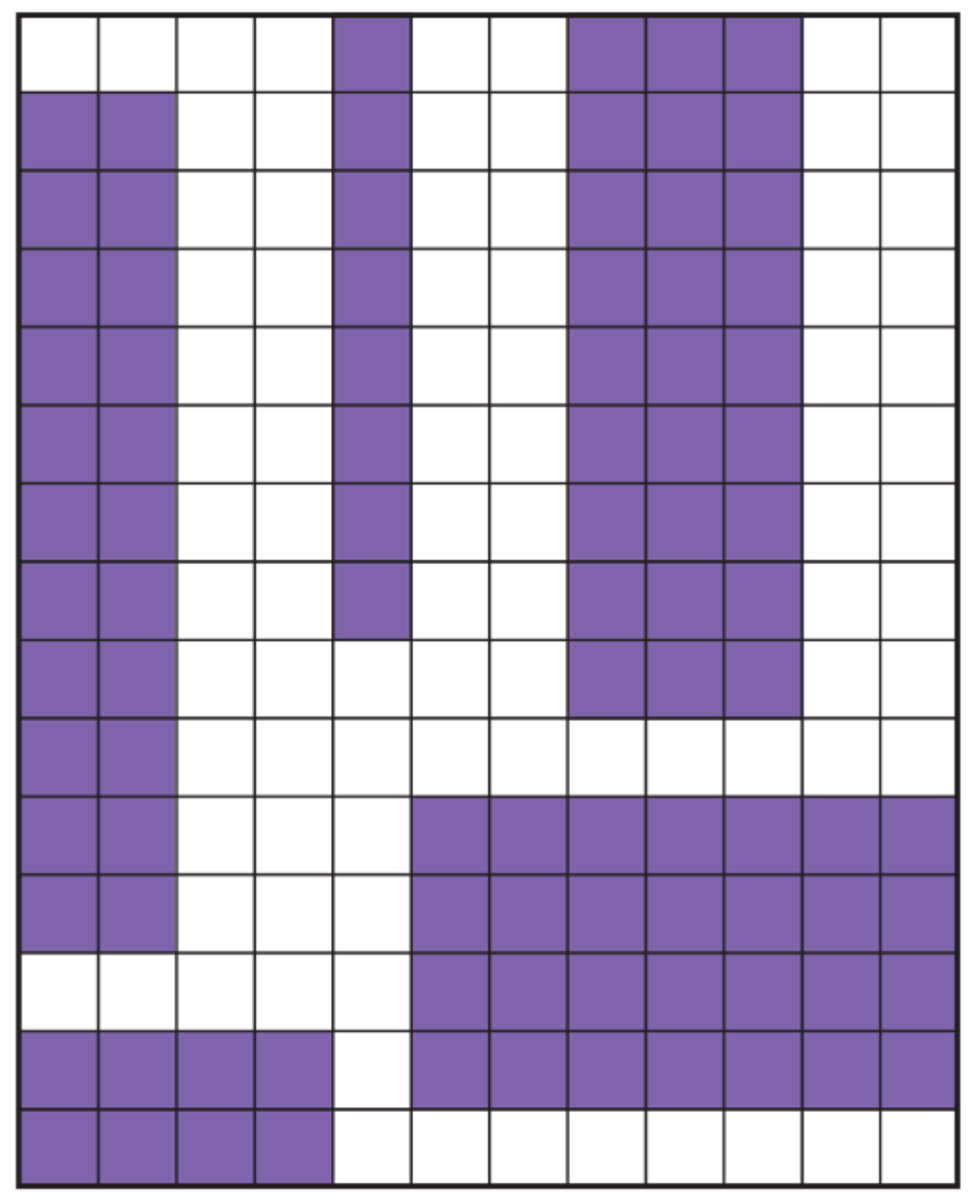

Count the number of grid squares in
each rectangle to find the area.
Which rectangle has the largest area?
Which rectangles have the same area?
Stage 2 - 3D Space
Stage 2 have commenced their next unit on 3D Space this week. Please use the link below to assist your child with this topic.
Use the DET poster for correct definitions and terminology.
Stage 3 - Fractions
Stage 3 have been busily working on fractions.
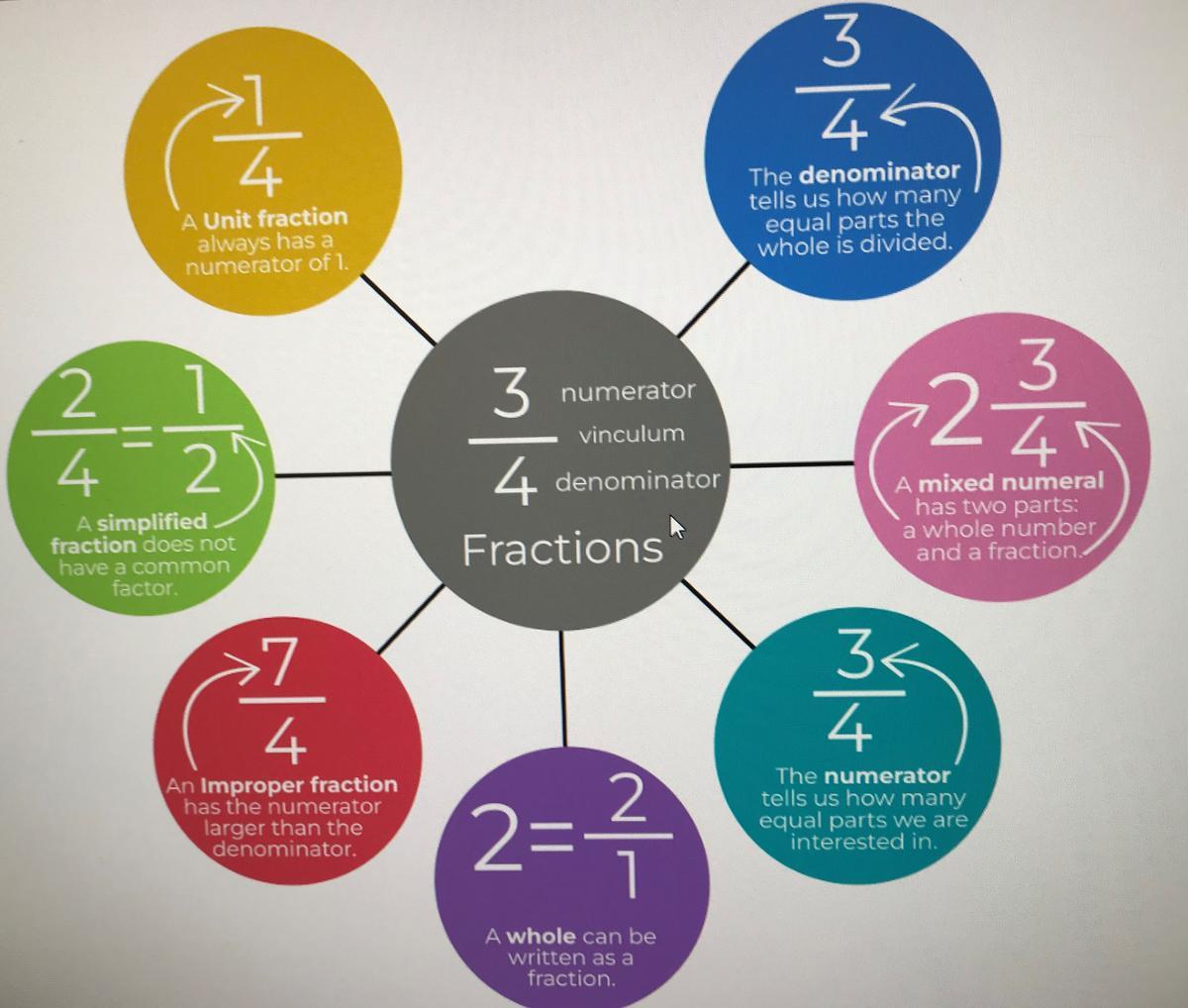

Problem of the Week:
Ella and Sienna baked a cake and cut it into eight pieces.
Ella ate two-eighths of the cake and Sienna was given the rest.
What fraction of the cake did Sienna receive?
What is an equivalent fraction for Sienna's share?
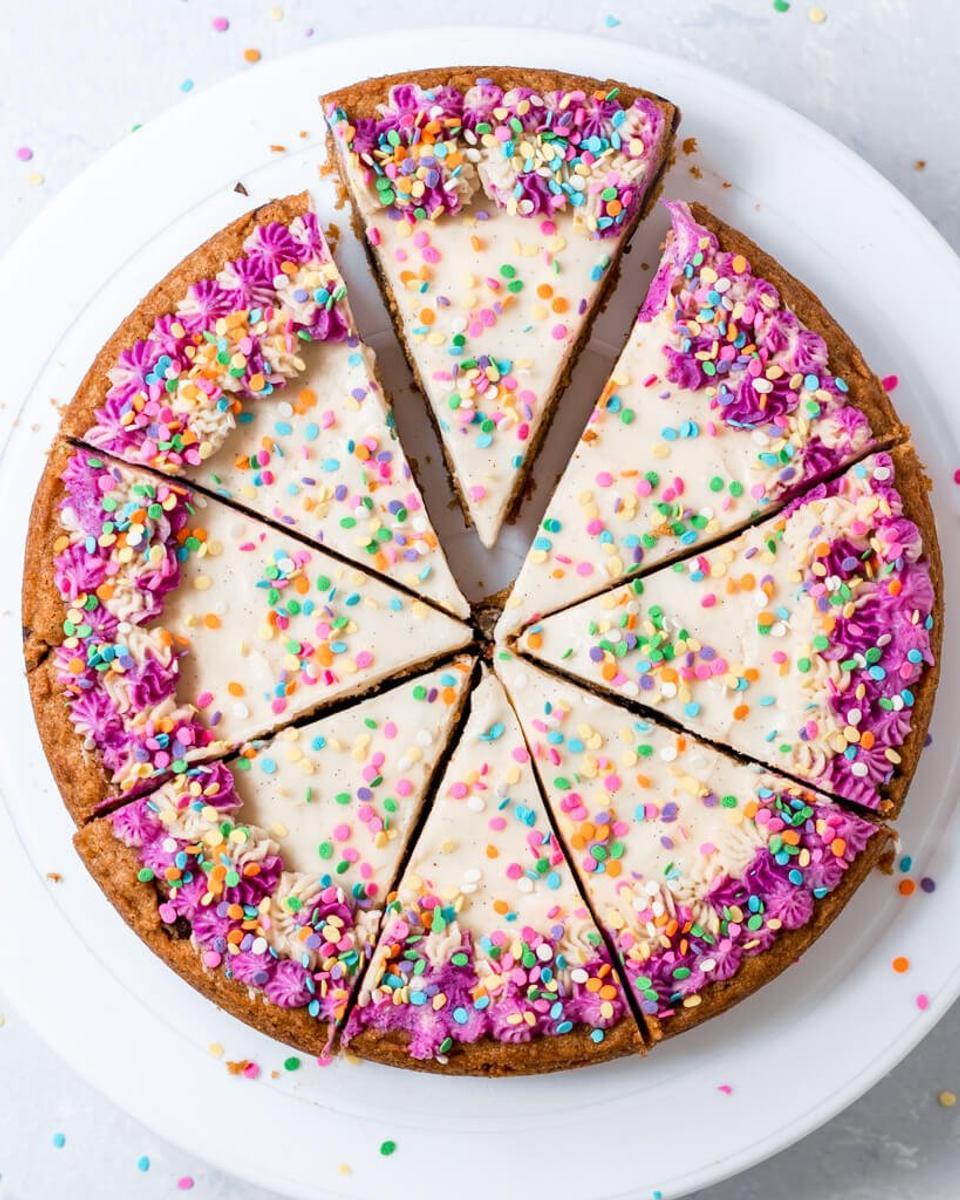

Have a great week of learning and fun!
Maree Holland & Greg O'Toole